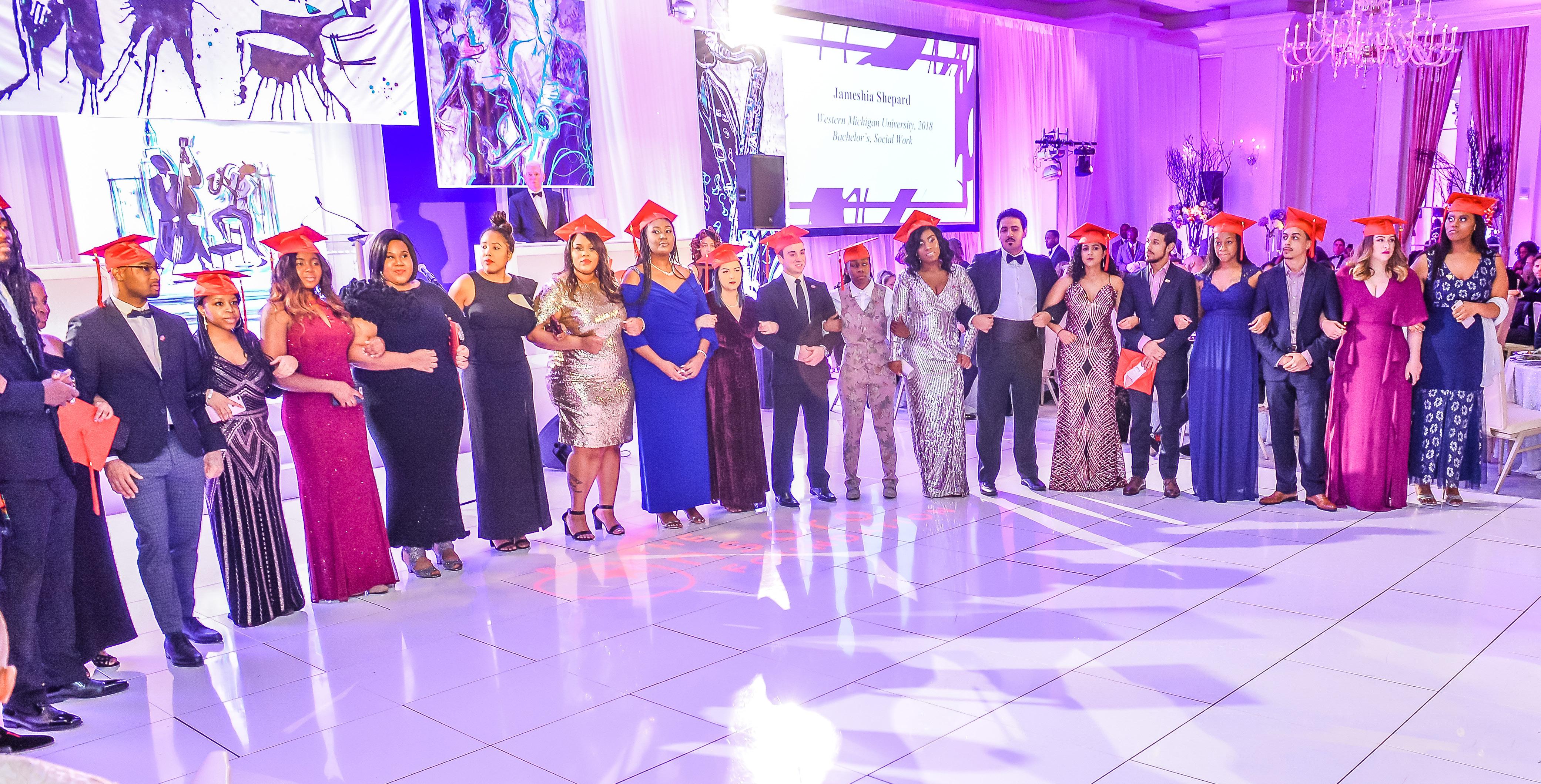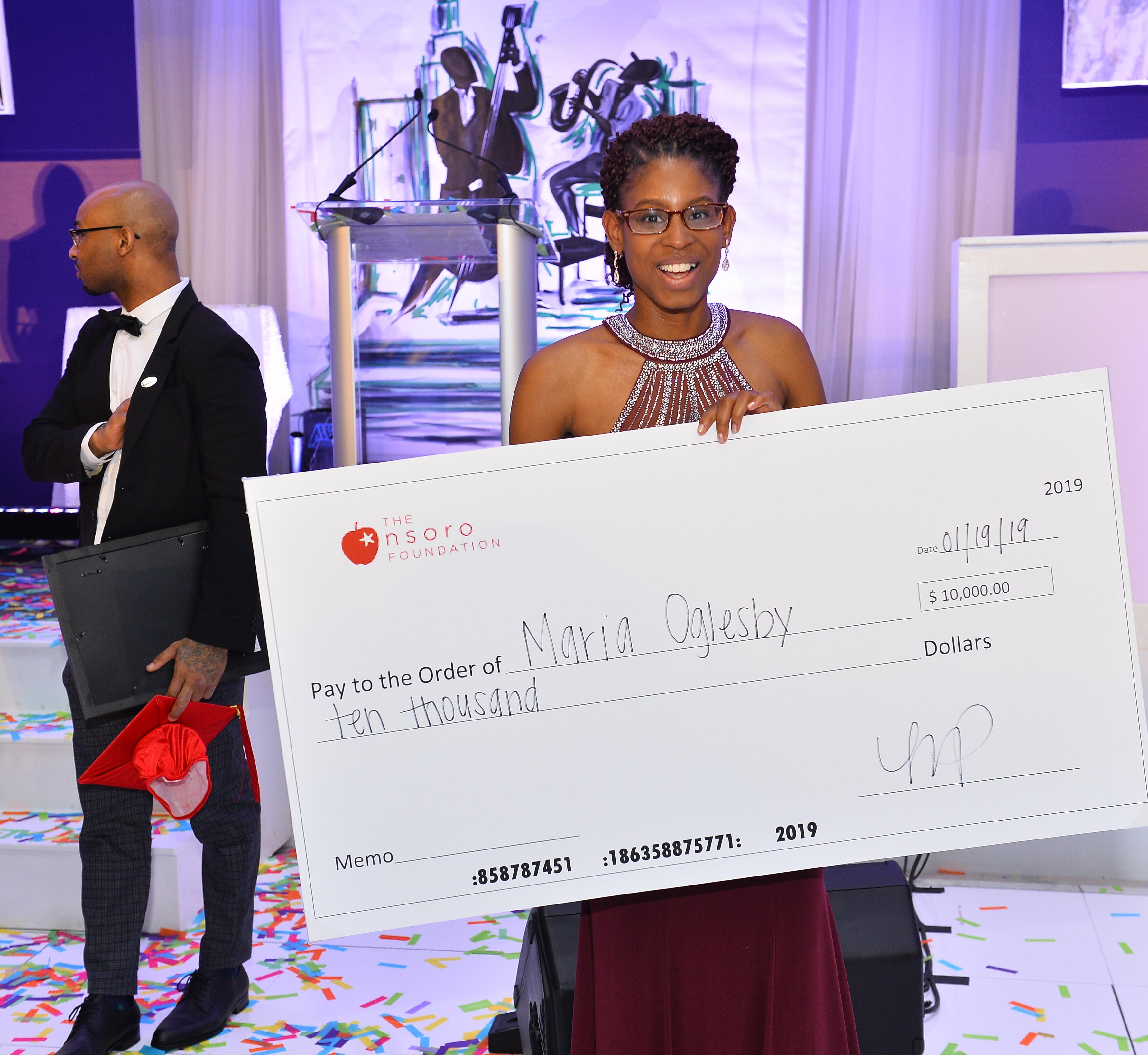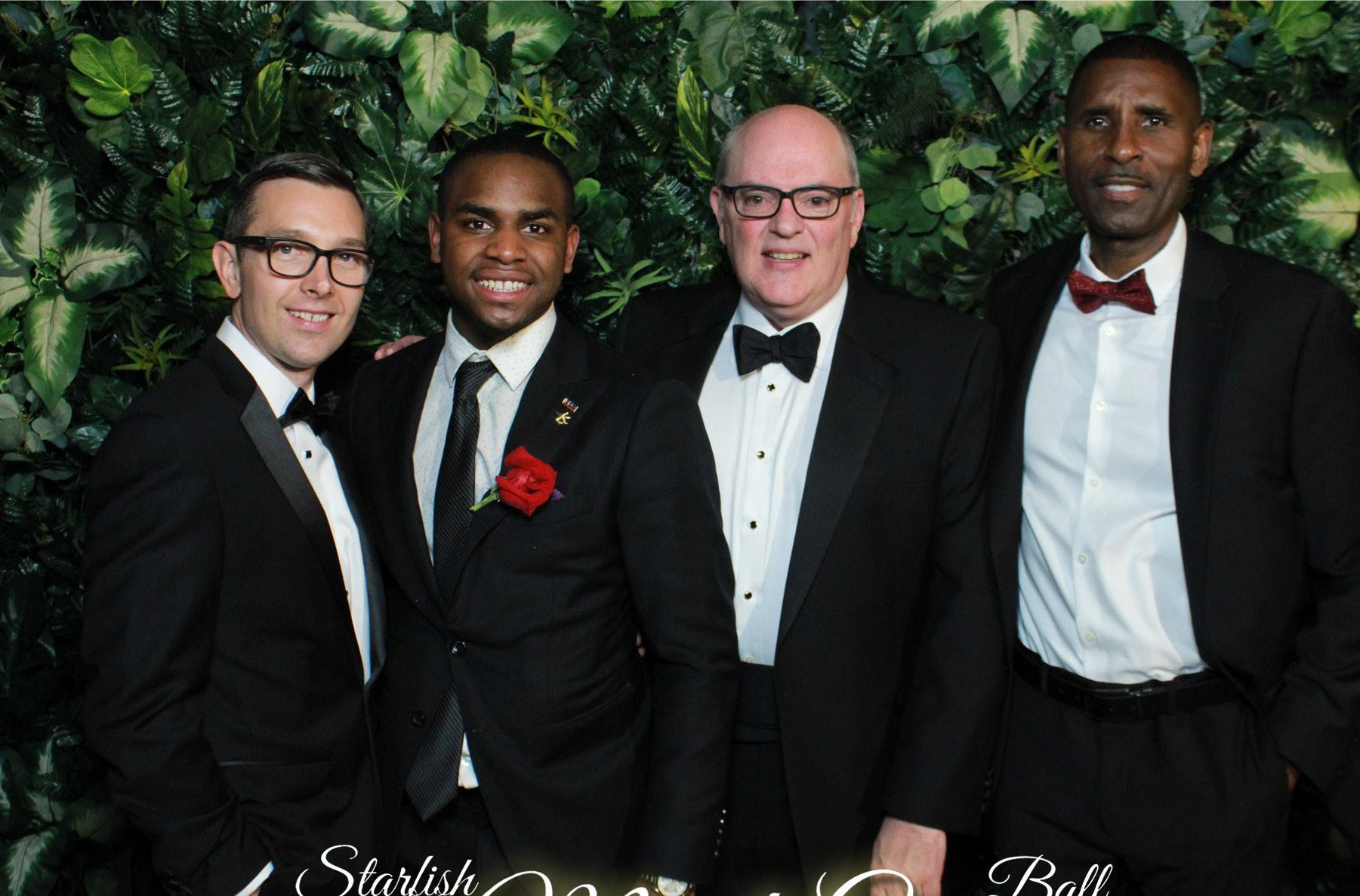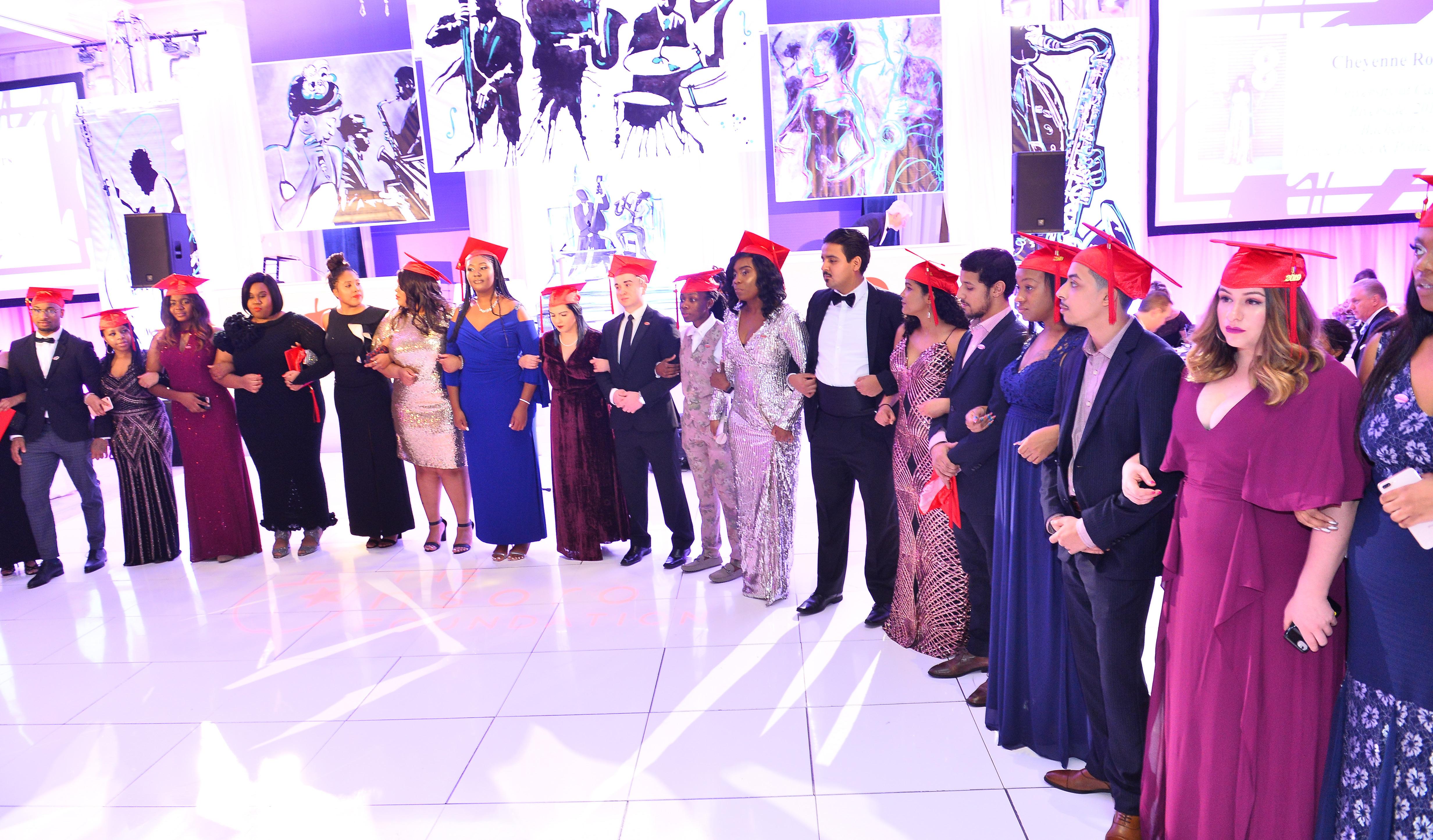
8 minute read
NSORO FOUNDATION
A Lifeline for Youth Aging
Out of the Foster Care System
Advertisement
Today’s foster youth, through no fault of their own, face burdens most of us can’t fathom. With little to no support, they must try to chart a course for a successful and productive life. In most states, at age 18, youth in foster care “age out” of the system, and overwhelmingly, are unprepared to face life on their own.
A University of Chicago study on former foster youth, observed that, “For most young people, the transition to adulthood is a gradual process. Many continue to receive financial and emotional support from their parents or other family members well past age 18.” This statement is in stark contrast to youth in foster care, however, as they are too old for the child welfare system but often unprepared to live as independent adults. Foster youth are expected to make it on their own long before the vast majority of their peers.
Youth aging out of foster care are often defined by a past characterized by trauma, tragedy, and broken families. As a consequence, they are often consequently preoccupied with their present and focused on surviving and managing daily obstacles. There is little time to think about, much less prepare for, the future. “For most young people, the transition to adulthood is a gradual process. Many continue to receive financial and emotional support from their parents or other family members well past age 18.”

Now, imagine you’re part of the foster care system and a helping hand is extended to you—right at this vulnerable moment—a lifeline with the power to alter the course of your life; an opportunity to create a future beyond the chaos and uncertainty of your past. The nsoro Educational Foundation is such a lifeline for youth aging out of the foster care system.
nsoro believes no young person aging out of the foster care system should have to navigate the world alone. nsoro offers educational opportunities, a community of support, and most importantly, hope, to some of this generation’s most impressive young adults. Education continues to change the conversation and alter the predictable path, and, in the process, redefine these youth by their resiliency, drive, and most importantly, a future full of possibilities.
“I believe education is the great equalizer. nsoro was created to bring opportunity to foster youth already determined to beat the odds. Every one of these young people deserves a chance at success, to reach their potential and experience the difference an education can make in their lives and their futures,” said Darrell Mays, Founder of the nsoro Educational Foundation.
Mays was inspired to found nsoro in 2005, after viewing the documentary “Aging Out.” The film chronicled the plight of foster-care youth, who, following their 18th birthday, age out of the foster- care system, which ends its formal oversight, and stops providing care.
In America today, more than 26,000 youth age out of the foster care system every year—two children every hour. For so many of them, inadequate resources, limited opportunities, and a history of trauma, tragedy, intergenerational poverty, and inconsistent care create an inescapable legacy that reliably prevents them from becoming independent, self-sustaining young adults. Without a powerful disrupting agent propelling these youth towards greater opportunities, we’ll be left with a generation of young people trapped in this cycle—an outcome with deep and ongoing societal costs. When you do intervene at this fortuitous moment, the potential benefit, in real dollars, not to mention the far-reaching ripple effect of countless lives changed, is extraordinary. nsoro is that disruptor.
Consider the cost of inaction:
• 50% of emancipated youth experience homelessness by age 20
• 47% unemployment rate of emancipated youth
• 78% of the U.S. death row population has, at one-point, experienced foster care
*Source: National Foster Youth Institute, https://chlss.org/blog/infographic- what-happens-when-kids-age-out-of-foster-care/


For every 1,000 foster youth not incarcerated or in community care, but employed and contributing back to society, an estimated $315 million is saved in government costs and an estimated $473 million could be gained in realized tax revenue over their lifetimes. nsoro’s scholarship program is also unique in providing financial assistance at all levels of a scholar’s education— supporting associate, bachelor’s, master’s and technical degrees. Beyond scholarship dollars, nsoro offers complete wraparound support for its scholars. While federal and state aid is available for post-secondary education, youth are often unaware of these resources or unsure of how to access these funds. nsoro advocates for these students, connecting them to all available resources and ensuring they are maximally leveraging both private and public financial assistance, such as PELL grants or tuition waivers toward their education. nsoro takes scholars’ financial literacy and preparedness seriously by providing ongoing guidance on money management, planning for the future, and making wise financial choices throughout their educational journey. Once a student becomes a nsoro scholar, they have access to these resources immediately and throughout their years in school as they make decisions on school selection, course load and work balance, internship opportunities, and other choices critical to

their academic and future career success. This comprehensive assistance not only aids in scholars’ retention but provides a secure and reliable support system for students—often for the first time in their lives. Currently, a nsoro scholar pursuing a bachelor’s degree receives $12,000 on average in scholarship aid over the entire course of their schooling.
As a student ages, financial aid from government sources is reduced, and as a result, many students often struggle to cover their living and housing expenses in their final years of school. Without nsoro, students must make difficult choices between basic living expenses and entering the workforce early without finishing their degree. nsoro is committed than ever to closing the funding gap for their education and seeks to grow its available scholarships to have the ability and flexibility to meet the financial needs current students face, particularly in the later stages of their education. This ensures they remain focused on completing their degree during a critical time.


Additionally, as the pool of nsoro graduates increases, the opportunity to fund post-graduate education has grown, and nsoro aims to support these scholars with additional financial investments so they can be leaders in their field. Future plans include a growing investment in students pursuing trade or professional certifications. While this leaves much to be done to invest in all deserving youth, every new scholarship represents a life changed, and as nsoro scholars have said, “opens doors that can’t be closed.”
With support from the United Way, nsoro forged a partnership with the Orange Duffle Bag Initiative in 2019 to launch a mentoring pilot program. 65 current scholars now have access to a dedicated, certified executive coach to provide life and career counseling, as well as education in emotional wellness and financial literacy training. The early results of this pilot have been incredibly positive as students have benefitted from greater access to individualized support, while gaining confidence in their ability to succeed in their education and beyond. As nsoro continues to refine this program and find additional funding sources, its hope is to offer personalized mentorship to all of our scholars.

RIHEEM, NSORO GRADUATE PICTURED WITH HIS EMPLOYER – BDO, ALTANTA’S MANAGING PARTNERS AT NSORO’S 2020 STARFISH BALL.
“Our scholars consistently ask us for more mentorship and coaching as they navigate the complexities of preparing for life during and after school. Research consistently shows mentorship is a crucial determiner of future success for young people at risk of falling behind, and across almost every metric—from staying in college and avoiding risky behaviors to ultimate career success. With limited staff resources for a growing body of students, we must ensure all our students have access to in-depth, personalized mentorship. Our goal is to create a network of mentors that equips our scholars to stay the course of their education, while optimally positioning them for a strong entrance to the workforce. As we continue to grow, developing our mentorship program through partnerships, volunteers, and service providers is a critical, strategic priority,” Mays said.
For information, contact nsoro Foundation Executive Director Monica Pantoja at 404.524.0807 or mpantoja@nsoro.foundation

Courtney, M., Dworsky, A., Lee, J., & Raap, M. (2009) Midwest evaluation of the adult functioning of former foster youth: Outcomes at age 23 and 24. Chicago: Chapin Hall at the University of Chicago
Breaking the Cycle…
Riheem Jefferson entered foster care at age 2—passing through countless group and foster homes until age 16. He experienced unspeakable abuse, witnessed constant violence, saw one brother killed in gang activity at 14, and lost another to a 20-year jail sentence—sadly predictable outcomes for far too many youth aging out of foster care. Yet, Riheem’s story has a different ending. At 16, he found the Carrie Steele-Pitts group home in Atlanta and was introduced to The nsoro Educational Foundation, where he received guidance, mentorship, and a scholarship to Savannah State University. There, he received a degree in Accounting and Business Administration, and is currently employed as a staff auditor at BDO USA, LLP in Atlanta.
“A man is measured by his ability to overcome adversity. But without safety, generosity, guidance, opportunities and unconditional love, it is impossible to overcome adversity. Without nsoro, I would not have known what was possible for me—and what so many take for granted.”
–Riheem Jefferson, nsoro Graduate










